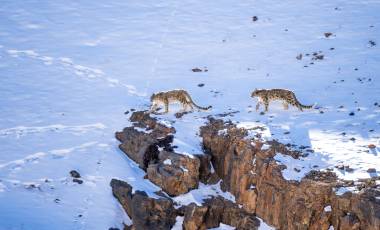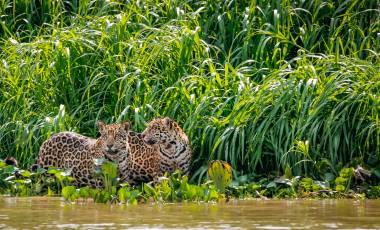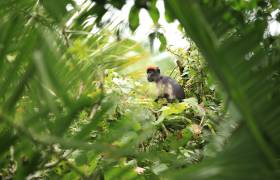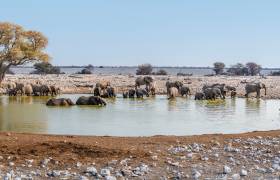Read time -3 minutes
Attenborough and co. are going strong into the second episode of the new series, which delivers and expands on the promises of the pilot.
A snow-capped mountain looms over us – Planet Earth II’s second episode gets underway high in the mighty Himalaya. A snow leopard brushes past the camera. Seeing the notoriously elusive cat closer than we ever believed was possible is a thrill, but it’s just a tease; the show lets us know about the ace up its sleeve, makes sure we’re paying attention, and then throws us into the action elsewhere.
Exploring the Himalaya
 Himalayan peaks
Himalayan peaksFirst up is nail-biting footage of a young family of Nubian ibex finding their feet on the sheer slopes of their Arabian homeland.
This segment immediately dispelled our concerns that the series had front-loaded its most tense and dramatic moments in the first episode – hearts in our mouths, eyes riveted to the screen, we could hardly watch as the infants navigated impossibly steep rock faces with gravity-defying grace, pursued all the while by a fox with a hungry gleam in its eye.
Find out more: Himalaya trips
Birdlife in the Alps
We next soar amidst the peaks of the Alps alongside sharp-eyed, sharp-taloned Golden eagles. These raptors dive at staggering speeds to catch their prey, and thanks to the tireless and perilous efforts of the camera crew, we’re able to dive right alongside them.
Next, we get to see the eagles’ desperate battles for food. The birds leap at each other talon-first in a dizzying dogfight, with their very survival in the harsh alpine winter at stake.
Find out more: BIrdwatching holidays
Of course, it’s not all battles and struggles. Episode 2 also reiterates the series’ playful side, demonstrating its uncanny ability to change tone seamlessly at the drop of a hat.
As Brown bears sashay down from the mountains post-hibernation, they rub up against the trees in an effort to shed their winter coats. All it takes is a little magic from Hans Zimmer’s score (which really shines in this episode) to turn the sequence into a hilarious and free-spirited bear dance.
Find out more: Bear Watching holidays
There’s no shortage of wonders on display. We see flocks of flamingos in the Andes, their bizarre parade at once awkward and glorious. We follow a bobcat on its hunt for food, pitting its considerable wits against the harsh conditions of Yellowstone National Park, and the cavalcade of hardy animals that live there.
We contrast all these intimate close-ups with jaw-dropping time-lapse footage of the mountains themselves, clouds rushing past jutting, jagged peaks and giving way to stars which wheel across the night sky.
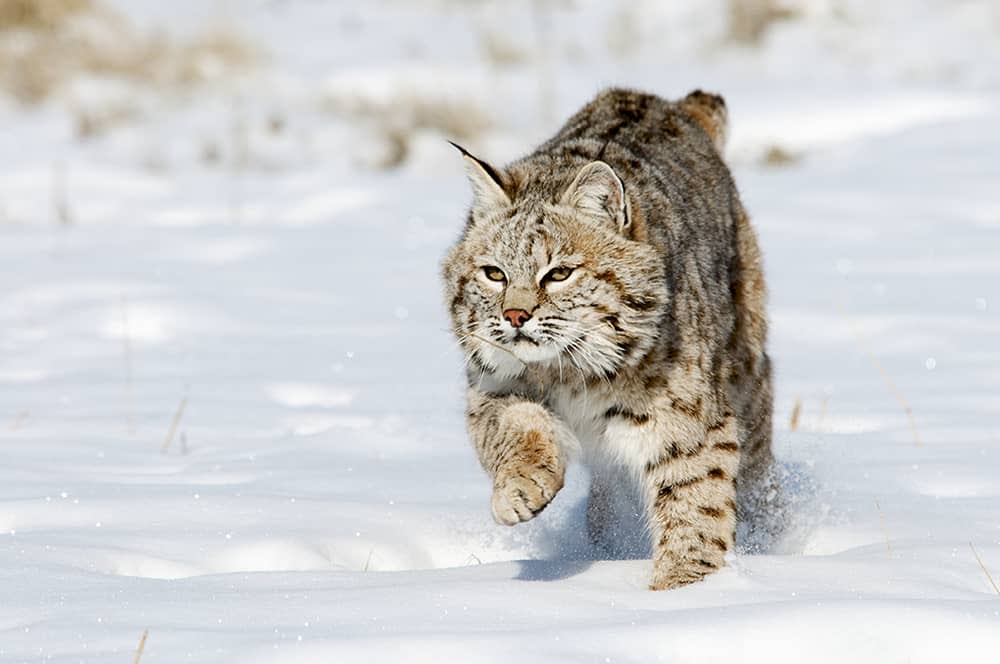 Prowling Bobcat
Prowling BobcatThis seems to be the Planet Earth II’s real strength – the crew’s newfound ability to juxtapose the vast majesty of the natural world with the immediate, visceral struggles of its inhabitants.
Episode 2 leans into this idea, to great effect; nowhere is this more in evidence than the final sequence, a ground-breaking scene which delivers on the show’s mission statement to bring us closer to the animals than ever before.
In Search of the Snow Leopard
Snow leopards are rare, elusive and live in some of the planet’s hardest-to-reach climes. As a result, they have been extremely difficult to film, and nigh impossible to film up-close. Until now.
By using sophisticated remote camera technology, the crew got a revelatory look into the lives of these majestic felines. Ten years ago Planet Earth showed us snow leopards from afar, looking out across a valley to give us a two-dimensional glimpse. Now, Planet Earth II shows us snow leopards at ground level.
Never before have four snow leopards been captured on film at the same time; it’s impossible to overstate just how captivating this footage is. We watched with bated breath as tensions between the cats reached breaking point and ferocious fights broke out.
We breathed a sigh of relief as the young female took her first steps into the wide world, alive only by virtue of her mother’s courage. How are we supposed to wait another week for episode 3?!
Find out more: Trips to Ladakh
Find out more about our wildlife trips below.
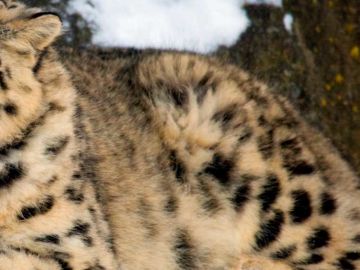
 Brown Bears
Brown Bears Exodus group scouring mountains for Snow leopards in Ladakh
Exodus group scouring mountains for Snow leopards in Ladakh Snow Leopard
Snow Leopard